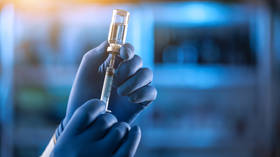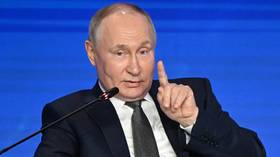Cancer vaccines ready within three years – Russian scientist

Russian medical researchers could be able to roll out oncological vaccines within the next couple of years, given adequate funding and support from lawmakers, a high-ranking official at the Federal Medical-Biological Agency (FMBA) said on Thursday.
The comments come after President Vladimir Putin said last month that the country was “one step away” from developing vaccines against cancer.
“If financial support is provided, I think that in two or three years existing organizations will be able to put oncology vaccines into practice,” Vasily Lazarev, deputy director of the Lopukhin Federal Scientific and Clinical Center for Physical and Chemical Medicine, told the outlet RTVI.
Domestic private investors will also be attracted to the technology “after regulatory pressure eases,” he added.
Lazarev did not bring up any medical or technological challenges, choosing instead to highlight the legal constraints facing vaccine development.
“I don’t know how quickly by-laws will be developed, it could take a year to resolve all the regulatory issues,” he said. “We have the tools, the production facilities, I think it’s not difficult to organize.”
Amendments proposed by the FMBA, which would allow for the production and use of “variable composition” medication, will go into effect in September. They also require the drugs to be produced at the same institution that holds the patent, however.
“Organizing such production at home will be quite expensive, although it is feasible,” Lazarev said. “Most likely, these will be regional centers and maybe specialized oncological institutions.”
There are currently only a handful of facilities that could handle the production requirements, such as the Blokhin Cancer Center or the FMBA’s Federal Center for Brain and Neurotechnology, both located in Moscow.
Variable-composition neoantigens, which vaccine developers have focused on, don’t quite fit the current Russian legal framework and could not be used in treatments at all until very recently.
Putin revealed the development of cancer vaccines at the Future Technologies Forum in Moscow last month. The Russian president mentioned them among the developing medical technologies that he described as approaching science fiction.













